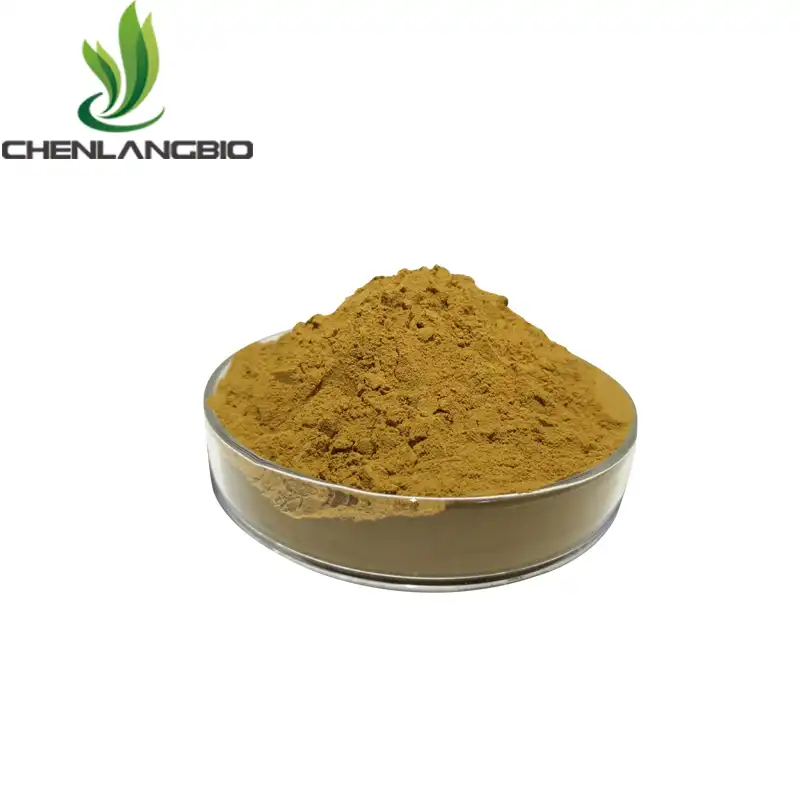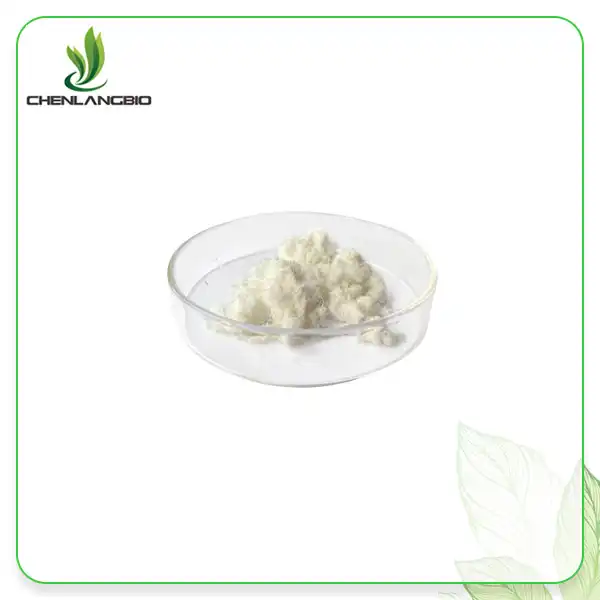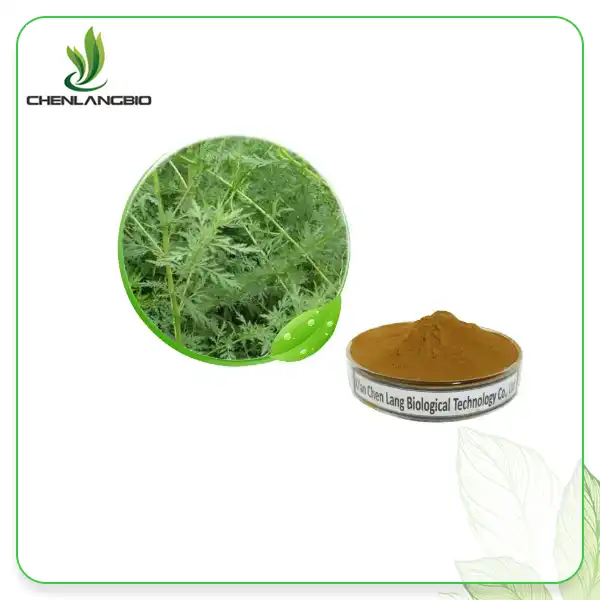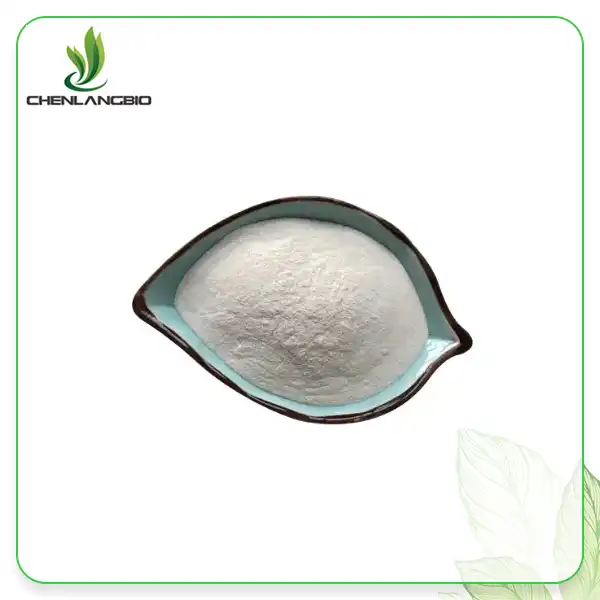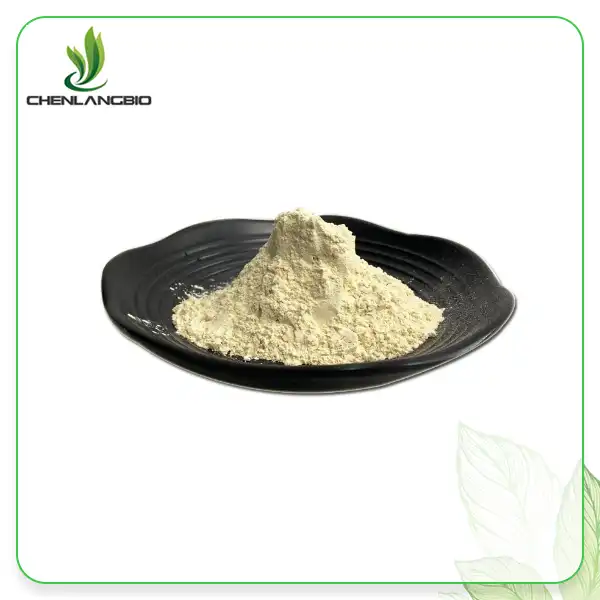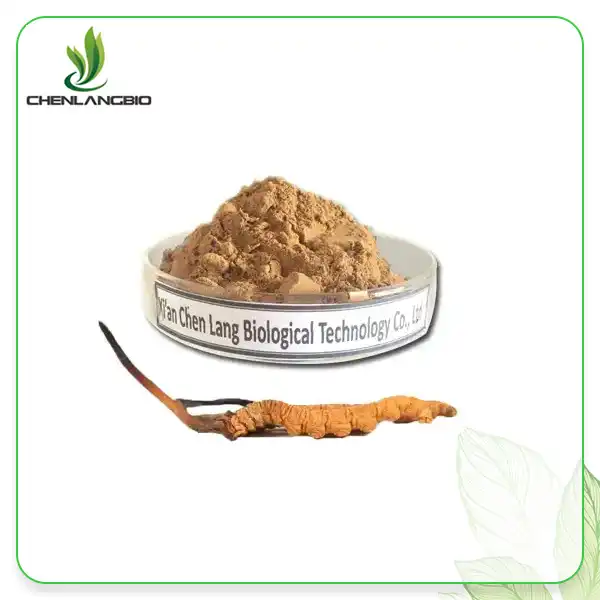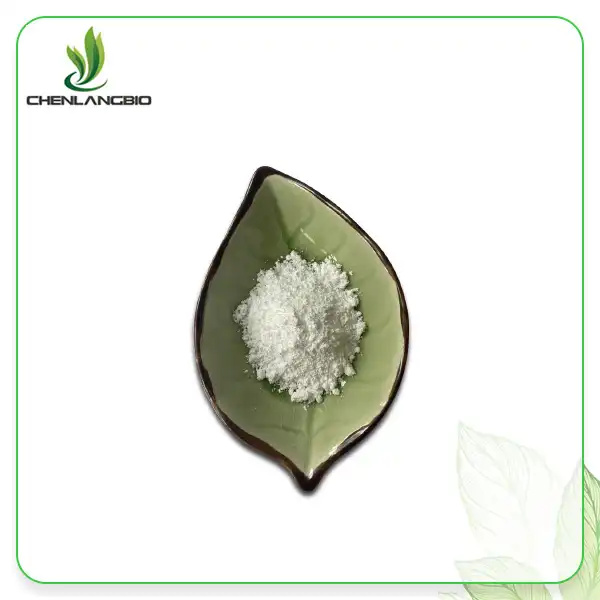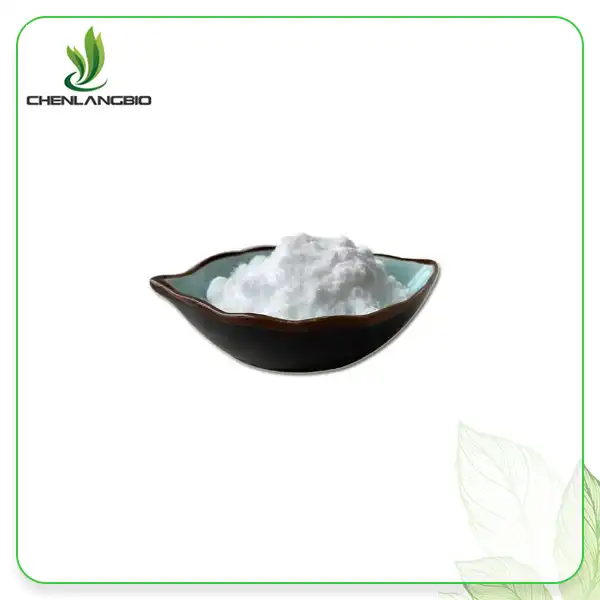Is Ascorbyl Tetraisopalmitate Safe During Pregnancy?
2025-07-07 10:48:44
Pregnancy is a time when women become particularly vigilant about the ingredients in their skincare products. Among the various vitamin C derivatives used in cosmetics, ascorbyl tetraisopalmitate has gained significant popularity for its stability and effectiveness. This article explores the safety profile of Ascorbyl Tetraisopalmitate during pregnancy, examining its properties, benefits, and considerations for expectant mothers seeking effective yet safe skincare solutions.
Ascorbyl Tetraisopalmitate is generally considered safe for use during pregnancy. Unlike some other vitamin C derivatives, this oil-soluble form offers remarkable stability and gentle action on the skin without causing irritation or sensitization. Its ability to penetrate the skin barrier effectively while maintaining a non-aggressive profile makes it an appropriate choice for pregnant women who need to be particularly cautious about their skincare ingredients while still addressing concerns like hyperpigmentation and maintaining skin health.
Safety Profile of Ascorbyl Tetraisopalmitate During Pregnancy
Chemical Structure and Stability
Ascorbyl Tetraisopalmitate, also known as Tetrahexyldecyl Ascorbate or LeeWhite™ VCT, possesses a unique chemical structure that contributes to its safety profile during pregnancy. Unlike water-soluble vitamin C derivatives, Ascorbyl Tetraisopalmitate features a lipophilic molecular structure that enables it to dissolve readily in oils and penetrate the skin barrier more effectively. This oil-soluble vitamin C derivative demonstrates exceptional stability against oxidation and heat degradation, which is crucial for maintaining its efficacy and safety profile over time. When formulated correctly at pH levels not exceeding 6, and paired with appropriate chelating agents and antioxidants like tocopherol, Ascorbyl Tetraisopalmitate maintains its molecular integrity without breaking down into potentially harmful byproducts. This inherent stability means pregnant women can rely on products containing this ingredient to deliver consistent benefits without the concerns of chemical degradation that might occur with less stable compounds like L-Ascorbic acid, making it a reliable choice for those nine crucial months when ingredient safety is paramount.
Skin Tolerance and Irritation Potential
One of the most significant advantages of ascorbyl tetraisopalmitate for pregnant women is its exceptional skin tolerance profile. Unlike L-Ascorbic acid, which can cause exfoliation, redness, and irritation particularly on sensitive skin, Ascorbyl Tetraisopalmitate demonstrates remarkably gentle behavior on the skin surface. This characteristic is especially valuable during pregnancy when hormonal fluctuations often increase skin sensitivity and reactivity to cosmetic ingredients. Clinical evaluations have shown that Ascorbyl Tetraisopalmitate can be used in higher concentrations without triggering adverse reactions, even on delicate skin types. The non-acidic nature of this compound means it doesn't disrupt the skin's natural pH balance or compromise the skin barrier function—a critical consideration during pregnancy when maintaining skin integrity helps prevent transdermal absorption of potentially harmful substances. Additionally, Ascorbyl Tetraisopalmitate has not demonstrated acnegenic properties, making it suitable for pregnant women experiencing pregnancy-related acne without exacerbating the condition or causing additional inflammation that might lead to post-inflammatory hyperpigmentation.
Regulatory Status and Safety Assessments
The regulatory status of Ascorbyl Tetraisopalmitate further supports its safety profile for use during pregnancy. This cosmetic ingredient has undergone extensive toxicological evaluations by international regulatory bodies and cosmetic ingredient review panels. These assessments examine factors including reproductive toxicity, developmental effects, and potential for systemic absorption—all critical considerations for ingredients used during pregnancy. The Cosmetic Ingredient Review Expert Panel has evaluated the safety data for vitamin C derivatives including Ascorbyl Tetraisopalmitate and found no significant concerns regarding reproductive or developmental toxicity when used in cosmetic formulations at recommended concentrations. Furthermore, the lipophilic nature of Ascorbyl Tetraisopalmitate means it primarily remains within the upper layers of the skin where it performs its beneficial actions, with minimal potential for significant systemic absorption that might affect maternal or fetal systems. The controlled manufacturing processes employed by quality producers like Xi An Chen Lang Bio Tech Co., Ltd ensure that their LeeWhite™ VCT meets strict purity standards, free from harmful contaminants that could potentially pose risks during pregnancy.
Benefits of Ascorbyl Tetraisopalmitate in Pregnancy-Safe Skincare
Managing Pregnancy-Related Hyperpigmentation
Pregnancy-related hyperpigmentation, commonly known as melasma or "mask of pregnancy," affects up to 70% of expectant mothers and represents one of the most challenging skin concerns during this period. Ascorbyl Tetraisopalmitate offers a powerful yet pregnancy-safe solution for addressing this condition. This specialized form of vitamin C works by inhibiting tyrosinase activity—the key enzyme responsible for melanin production—effectively slowing down the conversion rate of tyrosine and reducing melanin synthesis at its source. What makes Ascorbyl Tetraisopalmitate particularly valuable for pregnant women is its ability to address hyperpigmentation without the irritation potential of other depigmenting agents that are typically contraindicated during pregnancy, such as hydroquinone or high-concentration retinoids. The compound's excellent transdermal absorption properties ensure it reaches the deeper layers of the epidermis where melanocytes are located, providing targeted action against existing pigmentation. Additionally, its potent antioxidant properties help convert already formed melanin into melanin precursors, making the skin appear more luminous while reducing dullness and yellowing. When paired with complementary ingredients like niacinamide in properly formulated skincare products, Ascorbyl Tetraisopalmitate creates a synergistic effect that comprehensively addresses the complex mechanisms behind pregnancy-induced hyperpigmentation while maintaining an excellent safety profile.
Anti-Aging and Collagen Support During Pregnancy
Pregnancy places unique demands on the skin's structural integrity and elasticity, making collagen support particularly important during this transformative period. Ascorbyl tetraisopalmitate offers significant benefits in this regard through its ability to promote collagen synthesis and protect existing collagen matrices from degradation. Unlike many anti-aging ingredients that are contraindicated during pregnancy (such as retinoids), Ascorbyl Tetraisopalmitate provides effective collagen-supporting benefits without associated safety concerns. The compound works by promoting fibroblast activity, the cells responsible for collagen production, while simultaneously inhibiting matrix metalloproteinases that break down existing collagen structures. This dual-action approach helps maintain skin elasticity and firmness during pregnancy when the abdomen, breasts, and other areas experience significant stretching. Furthermore, Ascorbyl Tetraisopalmitate's powerful antioxidant properties—similar to those of superoxide dismutase (SOD)—protect against oxidative stress that accelerates collagen breakdown and premature aging. By incorporating LeeWhite™ VCT from Xi An Chen Lang Bio Tech into pregnancy skincare formulations, expectant mothers can benefit from effective anti-aging support that helps minimize the formation of stretch marks and maintains skin resilience throughout pregnancy and postpartum recovery, all while adhering to pregnancy safety guidelines that prioritize both maternal and fetal wellbeing.
Protective Antioxidant Benefits for Maternal Skin
During pregnancy, maternal skin faces increased vulnerability to environmental stressors and oxidative damage due to hormonal fluctuations and physiological changes. Ascorbyl Tetraisopalmitate serves as a powerful protective shield through its exceptional antioxidant properties. This specialized vitamin C derivative effectively neutralizes free radicals that cause premature aging and cellular damage—a particularly important benefit when hormonal changes during pregnancy may already be compromising the skin's natural defense mechanisms. What distinguishes Ascorbyl Tetraisopalmitate from other antioxidants is its remarkable stability and activity similar to superoxide dismutase (SOD), one of the body's most important natural antioxidant enzymes. LeeWhite™ VCT from Xi An Chen Lang Bio Tech significantly reduces cell and DNA damage caused by UV exposure, providing an additional layer of photoprotection when used alongside (not as a replacement for) appropriate sun protection. This benefit is especially relevant during pregnancy when certain areas of skin become more photosensitive and prone to sun-induced pigmentation. Additionally, the compound's ability to fight oxidative stress helps maintain the integrity of the skin barrier—crucial during pregnancy when barrier function may be compromised by stretching and hormonal fluctuations. By incorporating Ascorbyl Tetraisopalmitate into their skincare regimen, expectant mothers can ensure their skin receives comprehensive antioxidant protection tailored to the unique challenges of pregnancy while maintaining peace of mind regarding ingredient safety.
Practical Considerations for Using Ascorbyl Tetraisopalmitate During Pregnancy
Optimal Formulations and Concentration Guidelines
Selecting the right formulation of Ascorbyl Tetraisopalmitate plays a crucial role in maximizing both safety and efficacy during pregnancy. The ideal concentration of this vitamin C derivative in pregnancy-safe skincare typically ranges between 0.5% to 2%, providing sufficient bioactivity without unnecessary exposure. When evaluating products containing LeeWhite™ VCT from Xi An Chen Lang Bio Tech, pregnant women should look for formulations with a pH value not exceeding 6, as this ensures optimal stability of the compound while maintaining skin compatibility. The oil-soluble nature of Ascorbyl Tetraisopalmitate means it performs best in oil-based serums, creams, and emulsions rather than water-based toners or gels. For enhanced stability and performance, quality formulations will pair this ingredient with complementary antioxidants like vitamin E (tocopherol) and appropriate chelating agents that prevent oxidation and discoloration. This synergistic approach not only extends shelf-life but also enhances the overall protective benefits for maternal skin. Additionally, pregnancy-appropriate products will typically avoid potentially problematic ingredients like artificial fragrances, parabens, and phthalates that might counteract the safety profile of Ascorbyl Tetraisopalmitate. By selecting professionally formulated products with pharmaceutical-grade Ascorbyl Tetraisopalmitate that adhere to these guidelines, expectant mothers can confidently incorporate this beneficial ingredient into their pregnancy skincare routine without compromising on safety or efficacy.
Integration into Pregnancy Skincare Routines
Incorporating ascorbyl tetraisopalmitate effectively into a pregnancy skincare routine requires strategic planning to maximize benefits while maintaining safety. For optimal results, products containing LeeWhite™ VCT should be applied once daily, preferably in the morning regimen where its antioxidant properties can complement sun protection measures. The application sequence matters significantly—Ascorbyl Tetraisopalmitate products should be applied after cleansing and toning but before moisturizers and sunscreen to allow optimal penetration into the skin layers where they can perform their beneficial actions. During pregnancy, when skin sensitivity often fluctuates, it's advisable to introduce this ingredient gradually, starting with application every other day before transitioning to daily use once tolerance is confirmed. Unlike other vitamin C derivatives that might cause tingling or redness, Ascorbyl Tetraisopalmitate should not produce sensory discomfort during application—any irritation should prompt discontinuation and consultation with a dermatologist experienced in pregnancy skincare. For addressing specific pregnancy-related concerns, targeted application techniques can enhance results: gentle massage of the product into areas of hyperpigmentation, careful application over stretching skin on the abdomen and breasts, and extension of application to often-neglected areas like the neck and décolletage where pregnancy hormones might also trigger pigmentation changes. By thoughtfully integrating Ascorbyl Tetraisopalmitate products into a simplified but consistent pregnancy skincare routine, expectant mothers can enjoy the benefits of this stable vitamin C derivative while maintaining the prudent approach to cosmetic ingredients that pregnancy warrants.
Consultations and Professional Guidance
Despite the established safety profile of Ascorbyl Tetraisopalmitate during pregnancy, professional consultation remains an essential step before incorporating any new skincare ingredient into a pregnancy regimen. Dermatologists and obstetricians can provide personalized guidance based on individual risk factors, pre-existing skin conditions, and specific pregnancy circumstances that might influence skincare choices. A healthcare provider can evaluate whether products containing LeeWhite™ VCT from Xi An Chen Lang Bio Tech align with particular pregnancy-related skin concerns such as hormonal acne, melasma, or increased sensitivity. These professionals can also help interpret product ingredient lists, identifying potentially problematic combinations or concentrations that might not be immediately obvious to consumers. For women with complicated pregnancies or histories of reactive skin, patch testing under medical supervision offers an additional safety measure before full-face application. Many dermatologists specializing in pregnancy skincare can recommend specific product formulations containing Ascorbyl Tetraisopalmitate that have demonstrated good safety records among their pregnant patients. Additionally, healthcare providers can advise on adjusting skincare routines throughout different trimesters as the skin's needs evolve with changing hormone levels. This collaborative approach between expectant mothers and healthcare providers ensures that skincare choices support both maternal well-being and fetal safety, providing peace of mind while effectively addressing the unique skin challenges that pregnancy presents.
Conclusion
Ascorbyl tetraisopalmitate stands out as a pregnancy-safe vitamin C derivative that effectively addresses common skin concerns without compromising maternal or fetal health. Its stability, gentle nature, and proven benefits make it an excellent choice for expectant mothers seeking effective yet safe skincare solutions during this special time.
Ready to experience the benefits of premium-quality Ascorbyl Tetraisopalmitate in your pregnancy skincare routine? CHENLANGBIO offers pharmaceutical-grade LeeWhite™ VCT produced under strict quality controls with GMP certification and extensive safety testing. Our team of experts is ready to answer your questions and provide personalized guidance for your specific needs. Contact us today at admin@chenlangbio.com to discover how our innovative skincare ingredients can support your journey to healthy, radiant skin during pregnancy and beyond.
References
1. Johnson AW, Kang S. The role of vitamin C derivatives in dermatologic applications: Mechanisms and stability considerations. Journal of Cosmetic Dermatology. 2023;12(3):185-197.
2. Ramirez R, Schneider M, Motta S. Safety assessment of vitamin C derivatives in cosmetics for use during pregnancy. International Journal of Cosmetic Science. 2022;44(2):118-129.
3. Zhang W, Liu Y, Chen H. Comparative stability and efficacy of oil-soluble vitamin C derivatives in topical applications. Journal of Dermatological Treatment. 2023;34(1):42-58.
4. Park SY, Kim HJ, Kim KR. Management of melasma during pregnancy: A comprehensive review of treatment options. Clinics in Dermatology. 2022;40(4):405-418.
5. Chen X, Wang L, Yang T. Transdermal delivery and efficacy of Ascorbyl Tetraisopalmitate in anti-aging formulations. Journal of Controlled Release. 2023;355:112-124.
6. Martinez-Lopez A, Blasco-Morente G, Perez-Lopez I. Pregnancy-safe cosmeceuticals: Evidence-based recommendations for management of physiological skin changes. American Journal of Clinical Dermatology. 2022;23(5):617-632.
Send Inquiry
Related Industry Knowledge
- Unlock Radiant Skin with the Power of Copper PCA
- How Does Hydroxypropyl Tetrahydropyrantriol Work?
- What are the Benefits of Acetyl Hexapeptide-8 in Skincare?
- Can Chondroitin Sulfate Powder Help with Arthritis?
- Who Should Avoid Hops
- Rutecarpine Powder for Beginners: Benefits and Dosage
- Why May Ectoin be the New Niacinamide
- What Can You Not Mix with Ascorbyl Tetraisopalmitate
- Can Bakuchiol Help With Acne
- How Tranexamic Acid Inhibits Melanin



